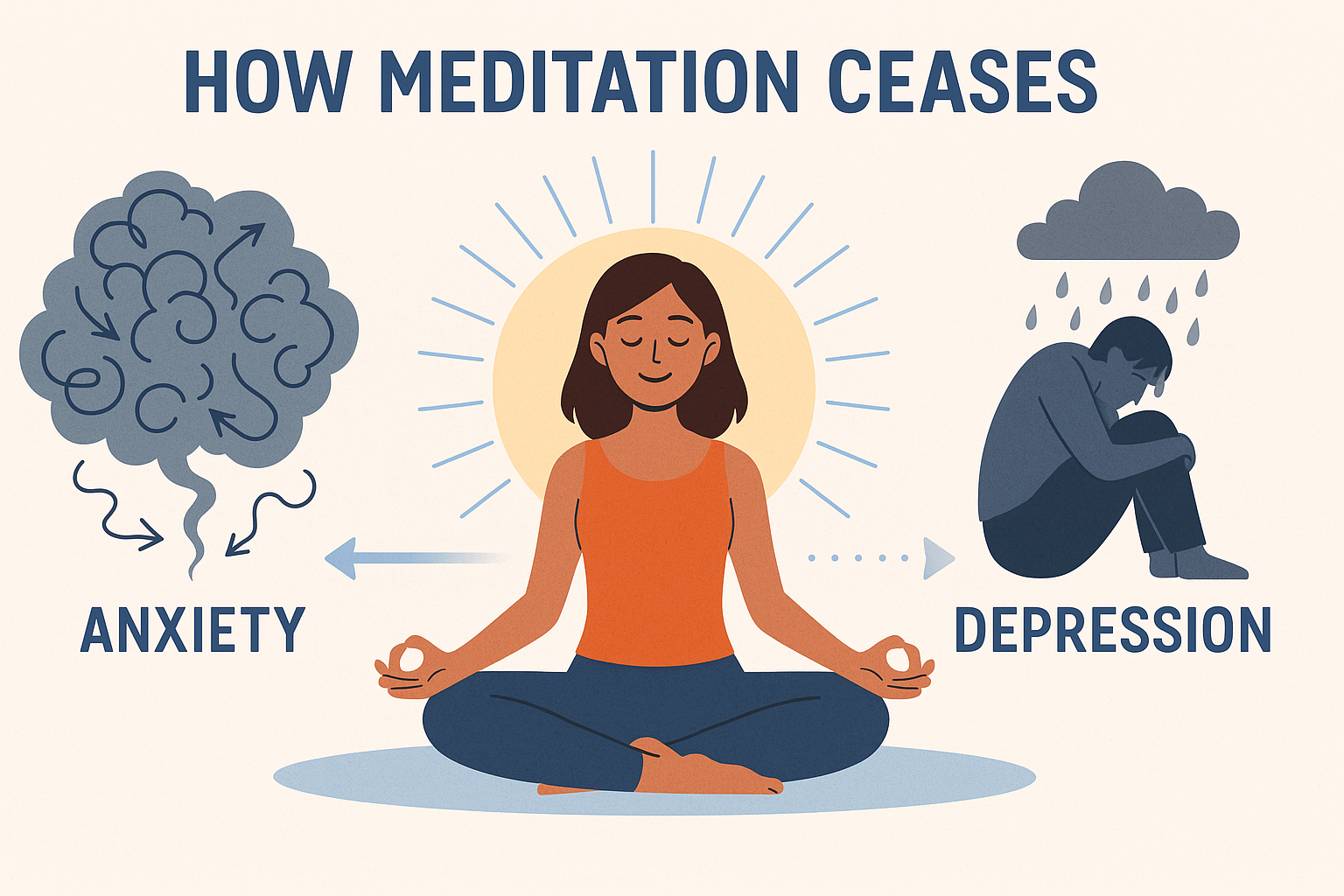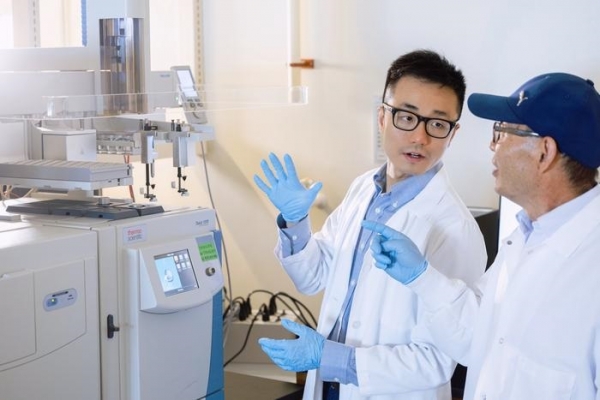Meditation and Mental Health: A Scientific Exploration of Ancient Wisdom
In a world where anxiety and depression are becoming increasingly widespread, meditation has risen not just as a spiritual tradition but as a scientifically endorsed method for improving mental health. Extensive studies from leading institutions—including Harvard University, University of Wisconsin–Madison, Yale University, University of California-Los–Los Angeles (UCLA), and Oxford University—have demonstrated how meditation reshapes the brain and supports emotional well-being. This essay explores the work of key scientists, including Dr. Sara Lazar, Dr. Richard Davidson, Dr. Judson Brewer, Dr. Eileen Luders, Dr. Mark Williams, Dr. Joe Dispenza, Dr. Ron Siegel, and David Richardson, who together show how meditation alleviates anxiety and depression.
Harvard University – Dr. Sara Lazar & Dr. Ron Siegel
Dr. Sara Lazar, a neuroscientist at Harvard Medical School and Massachusetts General Hospital, led a landmark study in 2011 using MRI scans to measure the brains of individuals who completed an 8-week Mindfulness-Based Stress Reduction (MBSR) program. Her research found:
-
Increased gray matter in the hippocampus (linked to emotion regulation and memory).
-
Thicker prefrontal cortex (associated with decision-making and attention).
-
Shrinking of the amygdala (the brain’s fear center), correlated with reduced stress levels.
“This study demonstrates that meditation can produce structural changes in the brain,” said Dr. Lazar.
Dr. Ron Siegel, also of Harvard Medical School, emphasizes that meditation allows individuals to develop “witnessing awareness”—a metacognitive ability to observe thoughts without being overwhelmed by them. This skill is critical in disrupting the cycle of anxiety and depression.
University of Wisconsin–Madison – Dr. Richard Davidson
At the Center for Healthy Minds, Dr. Richard J. Davidson, a pioneering neuroscientist at UW–Madison, has led some of the most influential studies on the emotional effects of meditation. His research shows that:
-
Long-term meditators have increased activity in the left prefrontal cortex, associated with happiness and emotional resilience.
-
Meditation produces higher gamma wave activity, which is linked to mental clarity, compassion, and integration of thoughts.
-
Participants recover faster from negative emotional events, demonstrating improved emotional regulation.
“Well-being is a skill,” Davidson says. “Meditation helps us train that skill.”
Yale University – Dr. Judson Brewer
Dr. Judson Brewer, a psychiatrist and neuroscientist formerly affiliated with Yale University School of Medicine, conducted research showing that meditation quiets the Default Mode Network (DMN)—a brain network involved in rumination, self-referential thinking, and worry, all of which are elevated in anxiety and depression.
Using fMRI scans, Dr. Brewer found that mindfulness practitioners show decreased DMN activity and greater functional connectivity in brain areas associated with self-monitoring and cognitive control.
“Meditation helps people step out of harmful loops of worry and self-judgment,” Dr. Brewer explains.
UCLA – Dr. Eileen Luders
At the University of California, Los Angeles (UCLA), neuroscientist Dr. Eileen Luders has studied how long-term meditation affects brain anatomy. Her research, published in the journal NeuroImage, found:
-
Increased cortical thickness and greater gray matter volume in meditators’ brains, particularly in regions responsible for attention and sensory processing.
-
Evidence that meditation slows age-related brain degeneration, potentially preserving mental health into later life.
These findings suggest that meditation is not only therapeutic for current mental health issues but also protective against future cognitive decline.
Oxford University – Dr. Mark Williams
In the UK, Dr. Mark Williams, clinical psychologist and professor at Oxford University, co-developed Mindfulness-Based Cognitive Therapy (MBCT). His research found that MBCT:
-
Is as effective as antidepressants in preventing relapse in individuals with recurrent depression.
-
Helps patients become more aware of negative thought patterns and break the cycle of automatic emotional reactivity.
A large randomized trial led by Dr. Williams and published in The Lancet confirmed that MBCT reduced the rate of depressive relapse by nearly 44%.
“Mindfulness teaches people to relate differently to thoughts and feelings, allowing for greater emotional flexibility,” Williams notes.
Additional Perspectives: Dr. Joe Dispenza and David Richardson
Dr. Joe Dispenza, a chiropractor and researcher in neuroscience and epigenetics, combines meditative techniques with brain wave analysis to help individuals transform emotional habits. Through EEG scans, Dispenza’s team has documented:
-
Coherent gamma brain wave activity during deep meditation, reflecting unified mental states.
-
Reduction in cortisol and stress-related biochemistry, enabling the body to shift into a healing, restorative mode.
He emphasizes that consistent meditation helps people break emotional addictions tied to past experiences and rewire the brain toward calmness and clarity.
David Richardson, a neuroscientist known for his work on neuroplasticity, further explains that meditation strengthens neural pathways associated with focus, compassion, and stress regulation. His work supports meditation as a tool for resilience-building at the neural level.
Conclusion: Meditation as a Neuroscientific Intervention
Meditation, once considered only a spiritual discipline, is now at the center of cutting-edge neuroscience and psychology. Research from institutions such as Harvard, Wisconsin, Yale, UCLA, and Oxford has validated its power to reshape the brain, calm the mind, and reduce the biochemical markers of stress, anxiety, and depression. Leading scientists like Dr. Sara Lazar, Dr. Richard Davidson, Dr. Judson Brewer, Dr. Eileen Luders, Dr. Mark Williams, Dr. Joe Dispenza, Dr. Ron Siegel, and David Richardson have demonstrated through rigorous research that meditation is not just helpful—it is transformative.
Meditation offers a bridge between ancient wisdom and modern science, allowing people to reclaim their mental health through self-awareness, focus, and inner stillness.










